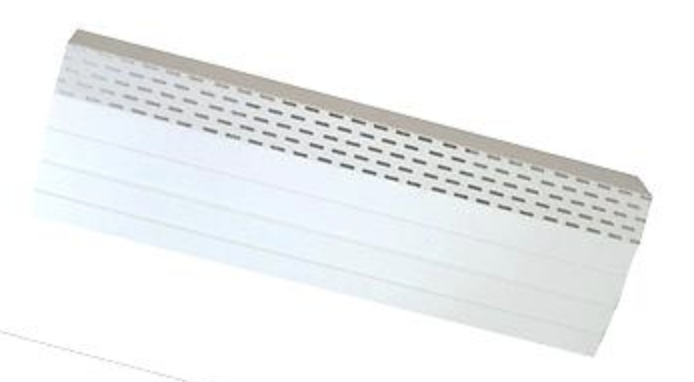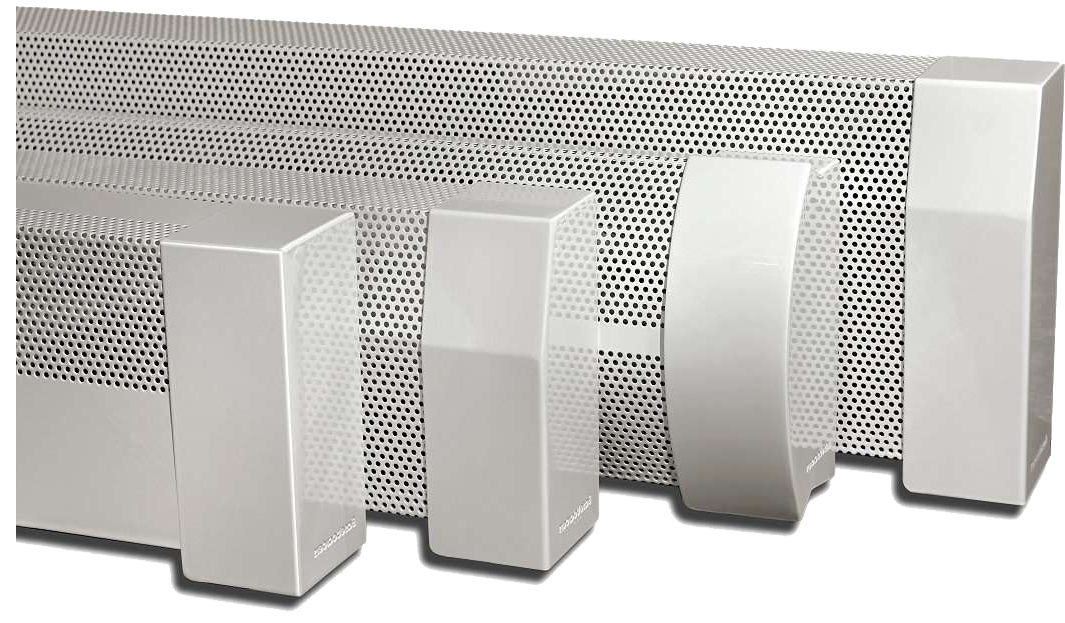Looking for the cheapest way to replace baseboard heat covers?
If you've set out to find the cheapest option for renovating your old rusty baseboard heaters you might want to consider the costs first.
There has been a change in how old baseboard heaters are decoratively rejuvenated. Perfectly functional, yet ugly baseboard radiators are everywhere. Their reputation is undisputed. But it should be made clear that the design of hot water baseboard is so good that finned tube element from the Truman era continues to still put out reliable heat year after year. While the three decades following the end of WWII marked a boom era for so called “perimeter heat” folks nowadays are seeking out low cost ways to restore these covers and bring their style up to date.
So where are the deep discounts on baseboard heater covers? Let's consider the options.
DUMMY COVERS:
Some people are fooled into thinking dummy covers (read: the same old covers you have now only not dinged up or rusted yet) are the low cost solution. These thin gauge relics of the 1950s are the bargain bin item of 2017, or so it might seem at first. Although dummy covers still haunt the aisles of many big box hardware stores, the dummy cover has since evolved from being the only solution to the choice of the uninformed, those with extremely poor taste (sorry, we had to say it) and the interior designer who’s been asked by their client to keep the place “mint”. Problem is, their low cost appeal quickly evaporates when the installation labor costs are taken into consideration. DIY they are not. Cheap? Not when the installation labor costs are considered.
If you’re looking for a discount, consider the big picture. Fact is, baseboard heaters are everywhere in a home that uses baseboard heat and a sound renovation strategy is needed. Way back when these puppies were installed, nobody cared if they would rust. Replacing the covers wasn’t on the contractor’s radar at the time. Besides, if a replacement was ever needed, it would mean a nice sized project awaited a lucky contractor. In a typical sized home, this can involve over 100 linear feet of baseboard panel that will be crying out for attention. If the dummy covers are installed, our research suggests a master plumber will spend a full 20 minutes per linear foot to remove the old covers, patch the wall, and install the new dummy covers. Loosely translated that works out to about $20 – $40 per linear foot in labor costs alone and that doesn't include the cost of the products. This makes any one of our modern DIY solution look like the discount option. Easy slip-on installation = $0 per linear foot.
Cost: $20-40/ft labor + $11/ft product cost
PLASTIC COVERS:

In a hydronic home heating system there are three main components; the boiler, the thermostat and the emitter (the baseboard heater or the cast iron radiator for example). Since the market is now offering up numerous products that substitute plastic for metal, it’s worth examining why plastic is not always the best way to go.
Finned tube element heating, also known as baseboard heating, uses the exact same convection and radiant heating principles as the larger cast iron radiators do. When the thermostat calls the boiler for heat, the boiler turns on and heated water flows through to the emitters in the heating loop. The slow moving air currents in the room will encounter the fins, the air will be heated, will rise and then eventually cool and fall to the floor. This process is cyclical. What happens when the thermostat tells the boiler to shut down after the set temperature has been reached? The water in the system stops flowing and eventually cools. It is at this stage of the cycle where the presence of metal close to the emitter will make a positive effect on the overall efficiency of the system. Metal is an excellent conductor of heat energy. Plastic on the other hand? Not so much. After the heater shuts off, the metal baseboard heater covers will still retain heat and the rooms convection air currents will continue to circulate for a certain period of time until the temperature in the room drops. Delaying the call for heat results in an overall fewer number of calls for heat to the boiler, which reduces the consumption of fuel and boosts efficiency when compared to naked finned tube element or when insulating materials like plastic are used as covers. Here’s why: With a plastic cover, you'll end up needing to run your baseboard heater longer to maintain heat temperatures which in turn means higher energy bills--not really the cheap solution after all, is it?
Cost: $11-21/ft + higher energy bills
METAL COVERS:

Every consumer wants a great deal when it comes time to update their old baseboard heaters. They also expect their heating system to continue to function properly with minimal annual maintenance. Utilizing a design that ensures sufficient air flow around the finned tube element is a must. Manufacturing a high-quality product that wont rust or dent like dummy covers, while still ensuring the most efficiency out of your heating system unlike insulating plastic solutions is a no brainer.
The trend towards the do it yourself easy slip-on baseboard heater cover started back in 2007 with the modern cover solutions you can find on our website and other similar sites. Not only did the overall cost of a baseboard heater renovation go down, the overall visual aesthetic went up. Way up. Baseboard heater covers can easily become the architectural highlight of any interior space. Always in a prominent location, it can say a lot about someone’s design taste and attention to detail.
Rejuvenating an entire house full of hot water baseboard heaters in less than 30 minutes by yourself is rewarding, cost effective and will last for years to come. Even though the upfront costs may seem higher, you'll end up saving in the long run--and who doesn't like saving!
Still looking for the best lowest cost option? Here's a rundown of our metal baseboard cover options and their approximate cost per foot:
Demi - $19.95*/ft
Basic - $21.95*/ft
Atlas and Titan - $27-28*/ft
Premium - $27-28*/ft
AtlasXL - $32*/ft
Premium Tall - $33*/ft
*not including endcaps and accessories

